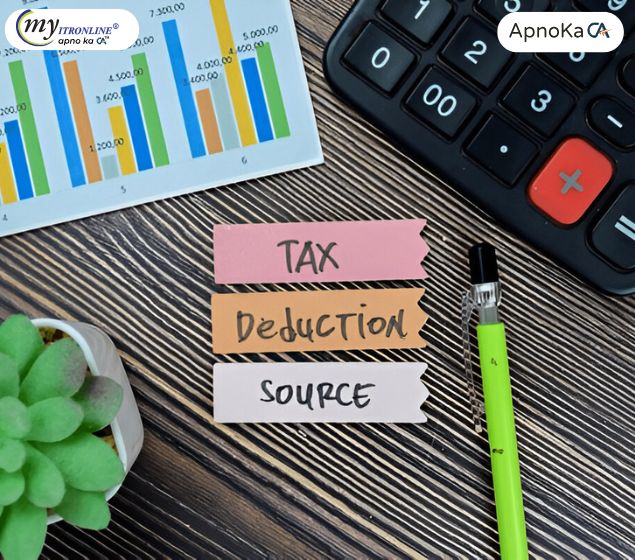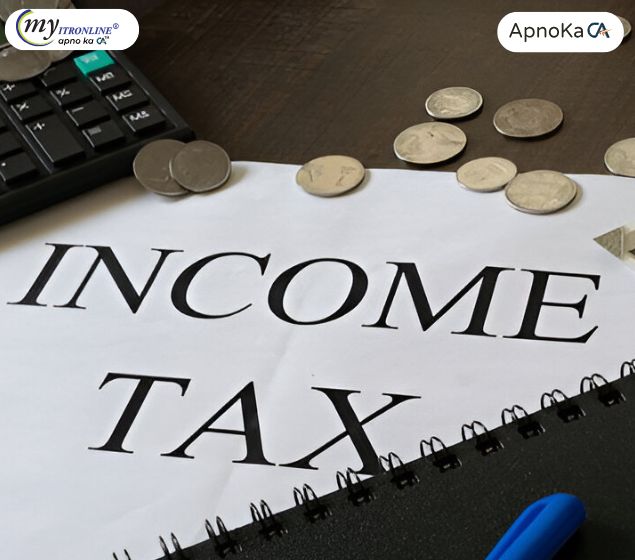# financeact
12 posts in `financeact` tag

GST Appeals Made Easier: Lower Pre Deposit Rules Under Finance Act 2025
The Finance Act 2025 brings relief to businesses by reducing the pre-deposit requirement for penalty only GST appeals from 25% to 10%. Tax appeals remain unchanged at 10%. Businesses can now use Input Tax Credit (ITC) for deposits, improving cash flow and easing compliance. These changes will be effective after CBIC notification.

Default Isn’t Always Best: How to Choose the Right Tax Regime in 2025–26
India's income tax system has undergone a major shift for FY 2025–26, with the New Tax Regime now set as the default. This blog breaks down the differences between the New and Old Regimes, compares tax slabs, and helps taxpayers decide which option suits them best. Whether you're a young professional or a seasoned investor, understanding these changes is key to smarter tax planning.

Big Changes Coming to GST on October 1, 2025: What Your Business Needs to Know
The Indian government has announced significant GST updates, effective October 1, 2025, stemming from the Finance Act, 2025. These amendments will impact definitions, voucher taxation, Input Tax Credit (ITC) on plant & machinery (retrospectively from 2017), return filing procedures, appeal processes, and introduce a new 'track & trace' system with associated penalties. Businesses must prepare for these changes by reviewing operations, updating systems, and training staff to ensure compliance and manage potential cash flow implications.
.jpg)
CBDT Instruction No. 01/2025 – Black Money Act Update for Minor Foreign Assets
The CBDT has issued Instruction No. 01/2025 on 18 August 2025, aligning its policy with the Finance (No. 2) Act, 2024. This update ensures that prosecution under Sections 49 and 50 of the Black Money Act will not be initiated for undisclosed non-immovable foreign assets valued up to ₹20 lakh. The move offers relief to genuine taxpayers, prevents harsh action for minor errors, and focuses enforcement on serious non-compliance cases.
.jpg)
4 Major Income Tax Changes for FY 2025-26 You Need to Know
This blog provides a detailed overview of four significant amendments to the Income Tax Act effective from Financial Year 2025-26. It covers the establishment of the new tax regime as the default option for taxpayers, the mandatory timely payments to MSMEs under the new Section 43B(h), the extension of tax benefits for startups, and the revised rules and thresholds for Tax Collected at Source (TCS) on foreign remittances and luxury goods.
.jpg)
Unlock Past Tax Corrections: Excel Utilities for Updated ITR-1 & ITR-2 (AY 2021-22 & 2022-23) Now Live!
The Income Tax Department has launched Excel utilities for filing Updated Returns (ITR-U) for Assessment Years 2021-22 and 2022-23, extending the filing window to 48 months as per the Finance Act, 2025. This blog details who can file ITR-U using ITR-1 and ITR-2, explains the new deadlines, outlines the penalty structure, and provides a step-by-step guide on using the Excel utilities to declare additional income and ensure tax compliance.

Important GST Update: Act Now! Returns Barred After 3 Years from August 1, 2025
This blog post provides an important update on GST for all registered businesses in India. Starting August 1, 2025, the GSTN will permanently prevent the filing of any GST returns that are more than three years overdue, according to the Finance Act, 2023. The article gives examples, such as GSTR-1 for June 2022 and GSTR-9 for FY 2020-21, to show the impact. It strongly urges taxpayers to reconcile their records right away and file any pending returns. The article discusses the serious consequences of not complying, including losing Input Tax Credit and facing legal troubles. It stresses the need to act now to prevent permanent blocking on the GST portal.

Breaking News: Income Tax Return (ITR) Filing Deadline for AY 2025-26 Extended to September 15, 2025
The Central Board of Direct Taxes (CBDT) has announced an extension for the filing of Income Tax Returns (ITRs) for Assessment Year (AY) 2025-26. Originally due by July 31, 2025, the deadline has now been extended to September 15, 2025. This decision comes in light of structural and content revisions in the notified ITRs, necessitating additional time for system development and integration, and considering the time required for system readiness. The extension aims to provide taxpayers with a smooth and convenient filing experience, ensuring compliance and accurate reporting

Avoid Penalties: Your Guide to Crypto Taxation in India
The Indian government has established a clear framework for the taxation of Virtual Digital Assets (VDAs) under the Finance Act 2022. This comprehensive guide covers the flat 30% tax on VDA gains, the 1% TDS on transactions, strict rules regarding loss set-off and carry forward, and other taxable scenarios like mining, staking, and gifts. It also provides a step-by-step approach to filing crypto taxes in India, emphasizing the importance of detailed record-keeping and professional assistance to ensure compliance and avoid penalties.

TDS Simplified: Your Essential Rate Chart for FY 2025-26 (AY 2026-27)
This in-depth guide simplifies TDS (Tax Deducted at Source) for Financial Year 2025-26 (Assessment Year 2026-27). Discover how this crucial tax collection mechanism works, explore the latest changes from Union Budget 2025 including increased threshold limits, the introduction of Section 194T for partners' remuneration, and the removal of higher TDS for non-filers. We provide a detailed TDS rate chart and explain the implications of non-compliance, empowering both deductors and deductees for efficient tax planning and compliance

CBDT Notifies ITR Forms 1-7 for AY 2025-26 (FY 2024-25): What Taxpayers Need to Know
The CBDT has notified the ITR forms (1-7) for AY 2025-26, incorporating changes from the Finance Act, 2024. This blog provides a comprehensive overview of the key modifications in each form, focusing on changes in capital gains reporting, eligibility criteria, deduction disclosures, and other compliance requirements to help taxpayers prepare for the upcoming filing season.

ITR-3 AY 2025-26 Key Changes: CBDT Notification & Updates Guide
CBDT has notified ITR-Form 3 for Assessment Year 2025-26 (FY 2024-25) via Notification No. 41/2025. This affects Individuals/HUFs with business/professional income. Key updates include a split Capital Gains schedule (pre/post July 23, 2024), new conditions for claiming share buyback loss (post Oct 1, 2024), an increased asset/liability reporting threshold to ₹1 crore, addition of Sec 44BBC reference, enhanced reporting for deductions like 80C & 10(13A), and mandatory TDS section code reporting. Taxpayers should review these changes for compliant filing.
